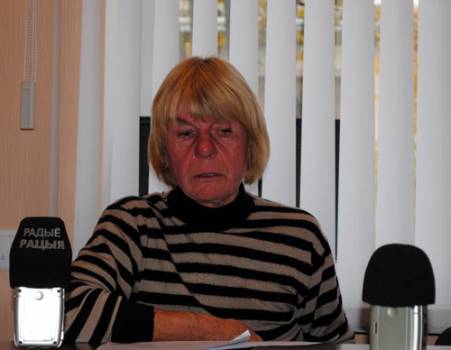Constitutional Court brushes off death penalty case
The Constitutional Court has responded to a petition by Tamara Sialiun, mother of Pavel Sialiun, who was executed on murder charges in April 2014.
In its reply, the Constitutional Court refers to the fact that in its activities it decides on the elimination of drawbacks, conflicts and legal uncertainty in regulatory legal acts. As regards compliance of Article 175 of the Criminal Executive Code with the Constitution and international treaties, such questions are considered by the Constitutional Court on the basis of proposals submitted by the authorized bodies. These bodies are: the President of the Republic of Belarus, the House of Representatives of the National Assembly of the Republic of Belarus, the Council of the Republic of the National Assembly of the Republic of Belarus, the Supreme Court of the Republic of Belarus and the Council of Ministers of the Republic of Belarus.
In addition, the responses indicated that the citizens of the Republic of Belarus can only enjoy indirect access to constitutional justice.
However, there were cases when the Constitutional Court on its own initiative considered complaints of citizens.
“If you believe that the rules of the Criminal Executive Code governing the execution of the sentence of the death penalty are contrary to the Constitution and international law ratified by the Republic of Belarus, you have the right to apply to the above competent authorities on the question of the introduction to the Constitutional Court of a proposal to verify their constitutionality,” says the letter from the Constitutional Court.
“In 2001, in the cases Lyashkevich v. Belarus and Bondarenko v. Belarus the United Nations Human Rights Committee said that the refusal to hand over the body for burial, as well as to report on the exact place of burial, had the effect of inhuman treatment to the relatives and friends of the executed prisoner. In the context of strategic litigation, we will continue seeking to change the criminal law and the implementation of international standards in the national legislation concerning the death penalty. According to available information, Tamara Sialiun intends to write to the bodies that can initiate amendments to the Criminal Procedure Code,” says Andrei Paluda, coordinator of the campaign “Human Rights Defenders against the Death Penalty in Belarus”.
On 12 June 2013, the Hrodna Regional Court found Pavel Sialiun, 23, former student of the Belarusian State University’s History Department, guilty under four articles of the Criminal Code, including double murder, theft and desecration of corpses. The young man had no criminal record. He said his actions were an act of jealousy – he killed his wife and her lover.
He was executed on April 18, 2014. About a month later, his mother received his prison uniform. She was not notified of the exact time and place of her son’s burial and has been unable to reclaim his body for burial.
On 23 February 2014, Tamara Sialiun sent a complaint against the Department of Corrections and the Hrodna Regional Court. However, her appeal was dismissed by the Leninski District Court of Hrodna.


















